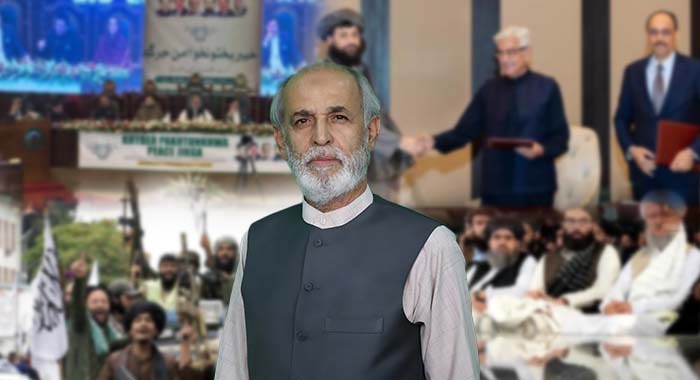(Shamim Shahid)
The recent developments in Khyber Pakhtunkhwa (KP) Assembly reflect a rare moment of political cohesion in a region long marred by conflict. All parties came together to adopt a fifteen-point declaration aimed at establishing peace and combating terrorism. While this represents an important step, the question remains: can these political gestures translate into tangible security outcomes on the ground? The answer, as history and current events suggest, is far from straightforward.
On the one hand, the political will demonstrated in KP is commendable. Consensus among parties, civil society representatives, and local stakeholders signals a unified front against extremism. However, recent attacks most notably in Wana and Islamabad targeting soft civilian locations underscore the persistent threat posed by non-state actors. Political agreements, while necessary, must be coupled with practical measures to neutralize these threats. Successful counterterrorism, as evidenced by the Swat operation of 2009, requires local engagement, trust-building with the population, and meticulous planning alongside military operations. In Swat, the provincial government collaborated closely with local leaders, enabling the displacement of militants while protecting and restoring the dignity of 2.5 million residents—a lesson that remains relevant today.
Complicating the situation further is Pakistan’s increasingly strained relationship with Afghanistan. The deputy prime minister of the Taliban, Abdul Baradar Ghani, recently declared a halt to trade with Pakistan, intensifying economic and political tension. The closure of border crossings has resulted in thousands of trucks laden with goods being destroyed on both sides, including perishables such as fruits, vegetables, poultry, and meat. This economic disruption not only harms traders and transporters but also undermines the livelihoods of ordinary citizens in KP. Contrary to some perceptions, terrorism does not originate from the official border areas, such as Torkham, where security is tight. Rather, it emanates from inaccessible regions where militant networks operate with impunity. Reopening border trade under strict supervision could significantly reduce economic losses without compromising security.
The Afghan Taliban’s stance on the Pakistani Taliban (TTP) also raises strategic concerns. While Pakistan seeks to manage the TTP as a domestic security challenge, the Afghan Taliban’s potential interference threatens to complicate counterterrorism efforts. Historically, the Afghan Taliban have provided shelter, manpower, and logistical support to their Pakistani counterparts, a pattern that continues now that they are in power. Attempts at dialogue through previous forums, including Turkey and Qatar, have largely failed to produce a lasting peace, highlighting the need for a comprehensive regional strategy.
An inclusive Afghan government, as envisioned under the Doha Agreement, remains central to resolving these intertwined issues. Only a government that incorporates all Afghan factions can effectively neutralize the Taliban’s unilateral influence and facilitate meaningful cooperation on security and counterterrorism. The United States, leveraging its diplomatic channels through Qatar, Turkey, Iran, Saudi Arabia, and Pakistan, has a critical role to play in pressuring the Taliban toward such inclusivity. Without such an arrangement, Pakistan’s border regions and broader national security interests remain vulnerable.
Ultimately, sustainable peace in KP and stability along the Pakistan-Afghanistan border requires a dual approach: a strong, locally supported counterterrorism framework within Pakistan, coupled with proactive regional diplomacy aimed at fostering an inclusive and cooperative Afghan government. Political declarations alone cannot resolve the crisis; strategic action, grounded in lessons from past operations and guided by regional diplomacy, is essential. The stakes are high not only for KP and Pakistan but for the entire region, where security, trade, and governance are inextricably linked.





